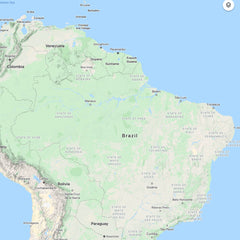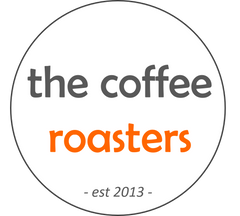Brazilian coffee | Recyclable Packaging
Brazil is the world's biggest coffee producing country and has had that title for 150 years. It’s climate, land mass, population and ease of export all lead to the coffee producing giant that today grows one third of the overall coffee world wide.
Coffee in Brazil is far more than a crop or a drink, it is deeply entwined in its culture and history. It has also historically played a huge role in international markets and during the great depression of the 1930’s Brazil was producing 80% of the worlds coffee and ended up burning 78 million bags of stockpiled coffee in an effort to invigorate coffee prices.
The Brazilian coffee industry today is around 3.5 million people strong and has around 220,000 coffee farms of various sizes. While you can find many small holder farms in Brazil, the country was the first and still leads the way in industrialised coffee production.
While in the majority of the coffee growing countries of the world, the coffee cherry is picked by hand, in Brazil the large farms operate huge machinery to pick the coffee. The benefit of this is the massive quantities of coffee that can be harvested at once (the machines shake the cherries loose from the branches. This leads on to the downside of this technique which is, all of the cherries are harvested at once whether ripe or not. Although processing the coffee in certain ways can separate the ripe coffee, the invasive nature of the harvest coupled with the relatively low altitude of many Brazilin farms compromise on the overall flavour.
High quality coffee can be traced back to the exact coffee farm however considering the size of certain farms and the amount of coffee they produce it isn’t always the same quality as other countries.
Typically, Brazilian coffee is found in espresso blends across the world. This is because of it’s low acidity, sweet nutty flavour and chocolatey notes as well as it’s fairly low price point. This is true for many Brazilian coffees, however there is a small percentage of unique and interesting coffees that make it out of Brazil and due to the multitude of Brazilian coffee a small percentage is actually quite a lot.
The following roasters now use recyclable or eco-friendly packaging: Casa Espresso, Rinaldo's Speciality Coffee, Horsham Coffee Roaster.
Here are their coffees...
Rinaldos Coffee: Brazil, Direct Trade - Cachoeira, Natural
Tags: Aeropress, Best for Espresso, Black, Brazil, Cafetiere, Chocolate, Espresso, Filter, Fruit, Ground, Hand Picked, Letterbox Friendly, Milky, Natural Process, Nut Like, Rainforest Alliance, Recyclable Packaging, Rinaldo's Coffee, South America, Stove Top, With milk

Not available
Rinaldos Coffee: Half-Caff: Brazil, Decaffeinated
Tags: Best for Cafetiere, Black, Brazil, Cafetiere, Decaffeinated, Espresso, Full Body, Ground, Letterbox Friendly, Recyclable Packaging, Rinaldo's Coffee, South America, Stove Top, With milk

Not available

|
Rinaldos Coffee: Brazil, Direct Trade - Cachoeira, Natural
Not available
Best for Espresso
Flavour notes: Deep chocolate and hazelnut notes with a strawberry finish
|

|

|
Rinaldos Coffee: Half-Caff: Brazil, Decaffeinated
Not available
Best for Cafetiere
Flavour notes: Smooth, well balanced, with a creamy body and a gentle dose of caffeine
|

|

|
Casa Espresso: Brazil, Patricia Coelho, Fazenda Santo Antonio, Natural
Not available
Best for Espresso
Flavour notes: Chocolate upfront, particularly cocoa in espresso, followed by an almond and honey sweetness
Not available to United Kingdom
|

|

|
Horsham Coffee Roaster: Brazil, Inhame Farm, Natural
Not available
Best for Cafetiere
Flavour notes: We love the traditional flavour profile of this brazilian coffee. It is clean with hazelnut, milk chocolate, and some gently dried fruit notes
Not available to United Kingdom
|

|







